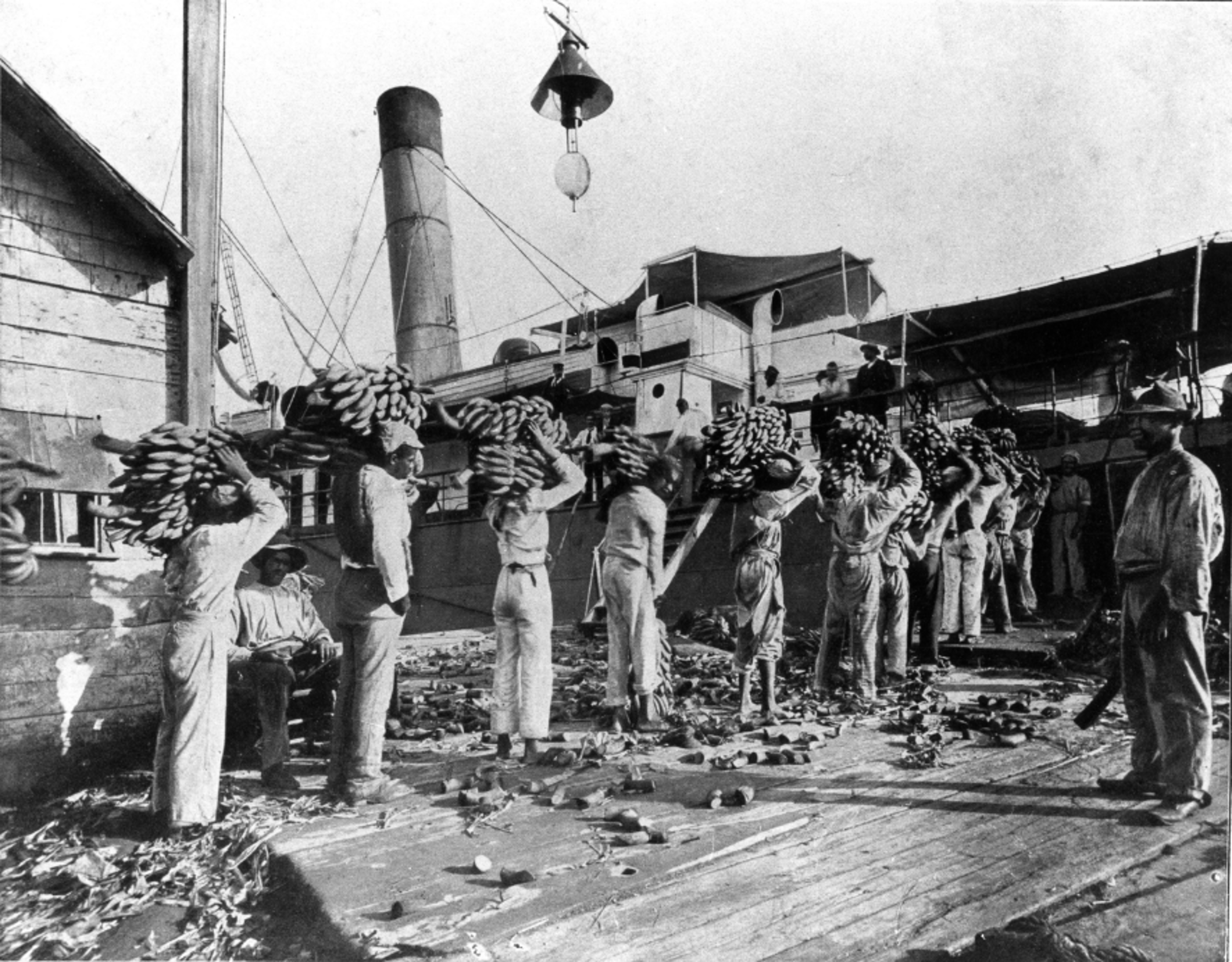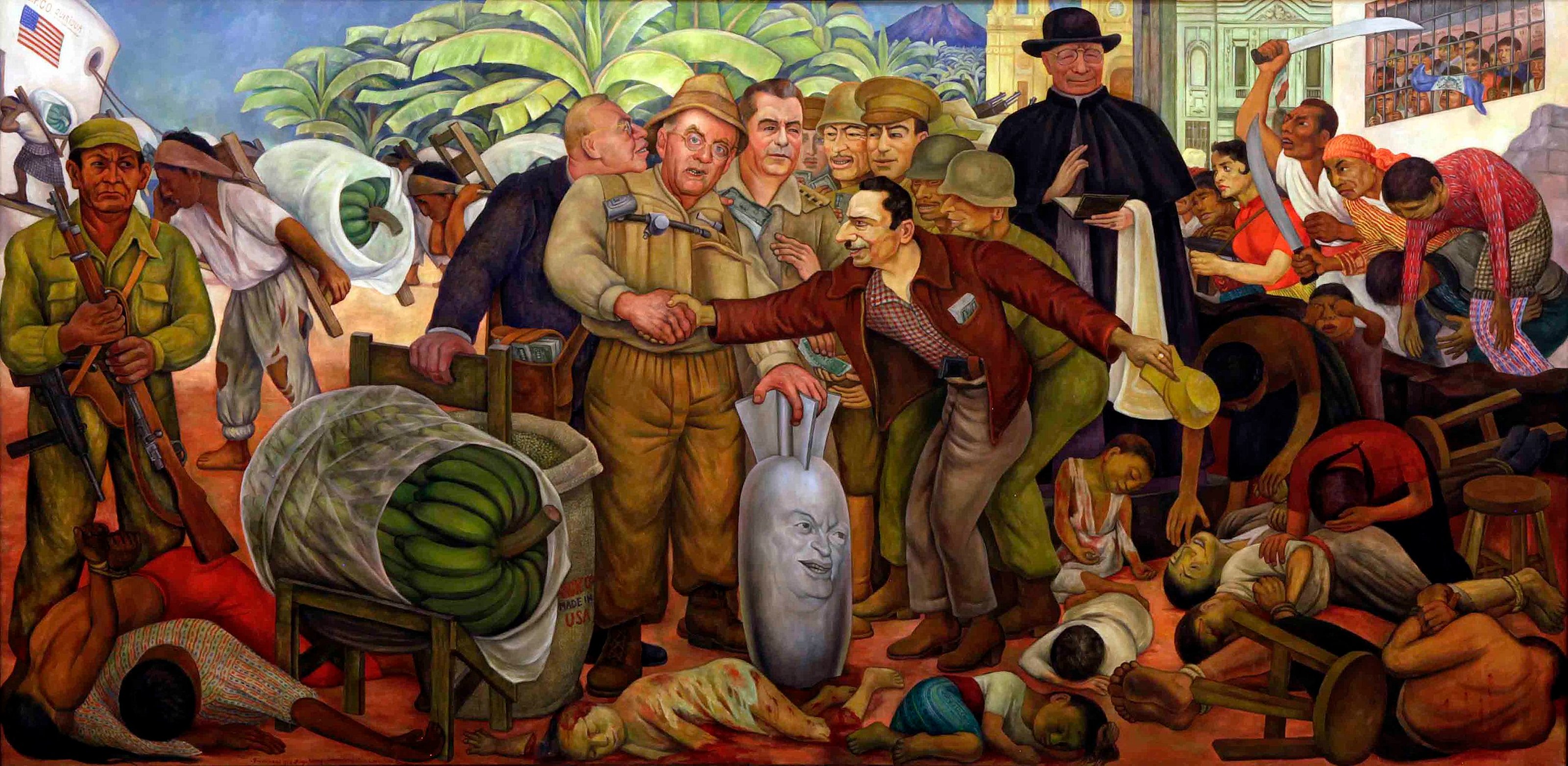In 1928, 25,000 banana workers from the _United Fruit Company_—an American corporation operating as Chiquita today—decided to go on strike in Colombia. United Fruit Company had become a local monopoly by developing strong ties to the Colombian and American governments and building its own railway system to transport its bananas. The banana workers’ demands included a 6-day work week, payment with money rather than company coupons, compensation for work accidents, increase in wages for workers earning less than 100 pesos per month, and a demand that is still echoed today by the hundreds of thousands of gig-economy workers globally: to be recognized as employees.

Banana workers carrying bananas during early 20th century Colombia
Video excerpt from Banana Land: Blood, Bullets & Poison (2014)
Disturbed by the losses that the strike caused to its bottom line, United Fruit Company decided to activate its power over the Colombian and U.S. governments. The workers were immediately and unjustly portrayed as “communists” by the local newspapers. The U.S. government threatened to invade, using the U.S. Marine Corps that were stationed off the shores of Ciénaga, should the Colombian government not act to protect United Fruit’s interests. Concerned with this threat and its potential economic impact, the Colombian government decided to act in favor of the interests of the United Fruit Company.
On Dec. 6, 1928, Colombian soldiers sprayed gunfire at the banana workers who were demonstrating outside of the United Fruit Company. The figures about the number of workers killed greatly fluctuate depending on the source, however, about a month later, the U.S. Ambassador to Bogotá, Jefferson Caffery, sent a dispatch home, informing Washington: “I have the honor to report…that the total number of strikers killed by the Colombian military exceeded one thousand.”

Diego Rivera – Gloriosa Victoria, 1954 (oil on linen)
This bloody piece of history seems hard to believe today, but the pursuit of monopolistic businesses by massive global corporations is alive and well today. With five major corporations—Amazon, Google, Apple, Microsoft and Facebook—now controlling all facets of our lives, we should be alarmed and doing everything possible to resist this orchestration. From the widespread, and now routine, surveillance of our lives, competition for Pentagon contracts to Amazon worker cages, and the gig-economy imposed on hundreds of thousands of workers, we are nearing an even more frightening chapter in this global thirst for power and profits. It is now more crucial than ever to put our differences aside and unite to protect our planet from this carefully executed scenario utilizing modern monopolistic structures.
End.
This article is part of a series of special features for the exhibition ‘1-31’ curated by Adam Carr.
Brett Wallace continues the conversation with ‘The Future of Work’ accompanying Simon Denny‘s artwork relating to Amazon’s unnerving worker cage patent application.